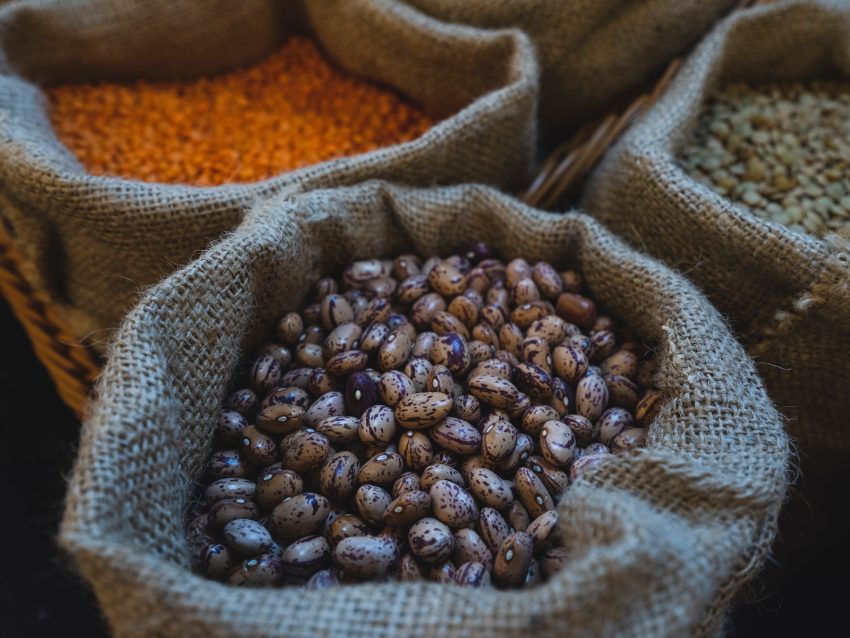The 5 Benefits of Pulses You Didn’t Know You Needed

Health experts have recommended that we consume more legumes, commonly known as pulses, as part of our diet, but have you ever wondered why? Vibrations are high in fiber and protein, low in fat and calories, and contain many essential vitamins and minerals. Whether you’re interested in pursuing vegetarian or vegan lifestyles or want to add some variety to your healthy eating habits, consider the benefits of the pulses described below. The five benefits of pulses you didn’t know you needed!
1) They are suitable for your heart
Pulses are a type of legume, so they offer the same benefits as other beans. They’re also high in fiber, which promotes cardiovascular health and can help lower cholesterol levels. Fiber also helps you feel fuller for longer, leading to weight loss if you have a healthy diet low in processed foods. In addition, pulses contain folate, which reduces the risk of heart disease and congenital disabilities. It’s worth noting that pregnant women should not eat raw or undercooked pulses because they might carry bacteria like listeria or toxoplasma. If you do eat raw pulses, cook them well before consuming them. Besides playing real money casino games australia can make you happier.
2) They help you lose weight
Pulses are low in calories and high in protein, meaning they’re a great way to maintain a healthy weight. One serving of pulses contains about the same protein as an egg white. And with more than 10g per serving, you can feel satisfied and stay full for longer. They’ll keep your blood sugar stable: They contain resistant starch. This carbohydrate is not broken down by enzymes during digestion and isn’t absorbed or converted into sugars like glucose. It delays the rate at which food is digested, releasing energy over a prolonged period, and preventing spikes in blood sugar levels and hunger cravings. They can help prevent diabetes: As mentioned before, pulses contain more soluble fiber than other legumes, so eating them regularly may help lower blood sugar levels in those who already have diabetes or are at risk for developing it.
3) They have a high protein content
Pulses, such as peas, beans, and lentils, contain higher amounts of protein than other grains or vegetables. A cup of cooked lentils contains nearly twice as much protein as a cup of cooked quinoa. According to the best online casino usa, Protein is essential for maintaining muscle mass and regulating blood sugar levels. Regarding blood sugar levels, pulses are also low on the glycemic index, which means they don’t cause spikes in blood sugar like many other carbohydrate sources.
4) Adding pulses to your diet reduces cholesterol levels
Pulses are an excellent source of protein, fiber, vitamins, and minerals source. But the benefits don’t stop there. Adding pulses to your diet can also reduce cholesterol levels, support weight loss efforts, provide relief from chronic constipation, and more. It’s time to get familiar with this superfood.
Pulses are a terrific source of high-quality protein, fiber, folate, potassium, zinc, and iron. They’re rich in other nutrients as well, including magnesium (good for heart health), manganese (key for strong bones), copper (crucial for average blood cell production), and vitamin B6 (essential for hormone regulation). One hundred grams of cooked lentils contains as much iron as 1 cup of spinach! What makes them so good? One reason is that they contain complex carbohydrates called oligosaccharides that have been shown to help lower cholesterol levels by slowing down the rate sugar is released into the bloodstream after a meal.
5) Pulses are a great way to fill up on fiber
Pulses are edible seeds from plants such as beans, lentils, and peas. They’re a great way to fill up on fiber, which can help keep you feeling full for longer and may also offer some other health benefits:
– Eating more fiber-rich foods like pulses may help reduce your risk of developing diabetes.
– The soluble fiber found in pulses can lower cholesterol levels by binding to bile acids in the digestive tract and reducing their absorption into the body.



Leave a Reply